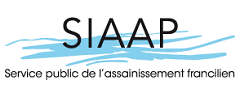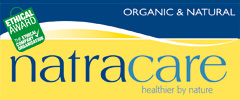Attacks on Environmental Women Human Rights Defenders Unacceptable
This year has been the deadliest year for environmental women human rights and environmental defenders, protecting their indigenous land and resources as they face increased crackdowns, violence, threats, intimidation and murder by state and non-state actors.
04.12.2017 | UN Office of Nairobi, Kenya

Women’s rights organisations held a tribute ceremony today, highlighting the important role of women human rights defenders for a pollution-free future.
Helen Hakena, Leitana Nehan Women’s Development Agency, Papua New Guinea said, “We have suffered a 20-year war, which has had a terrible impact on Women. 62% of the men confessed to having raped women. Even though the war has ended, women still face immense aggression from the conflict of resources on our land, where an international mining company operated the largest open pit mine in the world. The Panguna mine has destroyed and polluted our land, forest, rivers and food sources, and seeps all profits away.”
Priscilla Achakpa, Women’s Major Group said, “200 environmental and women human rights defenders have been assassinated this last year, mostly killed over land and forest conflicts. Only last week, we lost Elisa Badayos from the Philippines. But these conflicts are greatly aggravated by pollution.” In the Niger Delta, communities continue to resist against the oil spills from Shell, which have devastated their lands. In Lagos, the waste scavengers resist eviction. “Pollution is not incidental but is a deliberate and inevitable consequence of a profit-oriented economy of mass production of harmful plastics, pesticides, and fossil fuels,” Priscilla Achakpa added.
In Kenya, some 5000 people are exposed to Mercury pollution in Artisanal Small-scale Gold Mining sites. “Mercury is banned under the Minamata Convention, negotiated here at UNEP. In the impoverished community that I’m working with they don’t have much option. Mining gold and mixing it with mercury is the only knowledge they have and the main source of income. Communities do not have access to information about the hazards of using mercury. We need our government to stop mercury trade” said Griffins Ochieng from the Centre for Environmental Justice and Development (CEJAD), a Kenya based NGO.
The effects of pollution outlive us all. UNEA-3 must prioritise protecting women human rights and environment defenders, by creating a fast-response civil society advisory committee and strengthening UNEP’s safeguards and human rights policies in its vision to ‘leave no one behind’.
About Women’s Major Group
The Women’s Major Group (WMG) was created at the 1992 Earth Summit in Rio de Janeiro, Brazil, where governments recognized Women as one of the nine important groups in society for achieving sustainable development. The WMG is an official participant in the United Nations processes on Sustainable Development. Other processes use the major group or similar systems, with the WMG active in the processes of the United Nations Environment Program since 1996. F: @WomensMajorGroup T:@Women_Rio20
Watch the full conference here


































